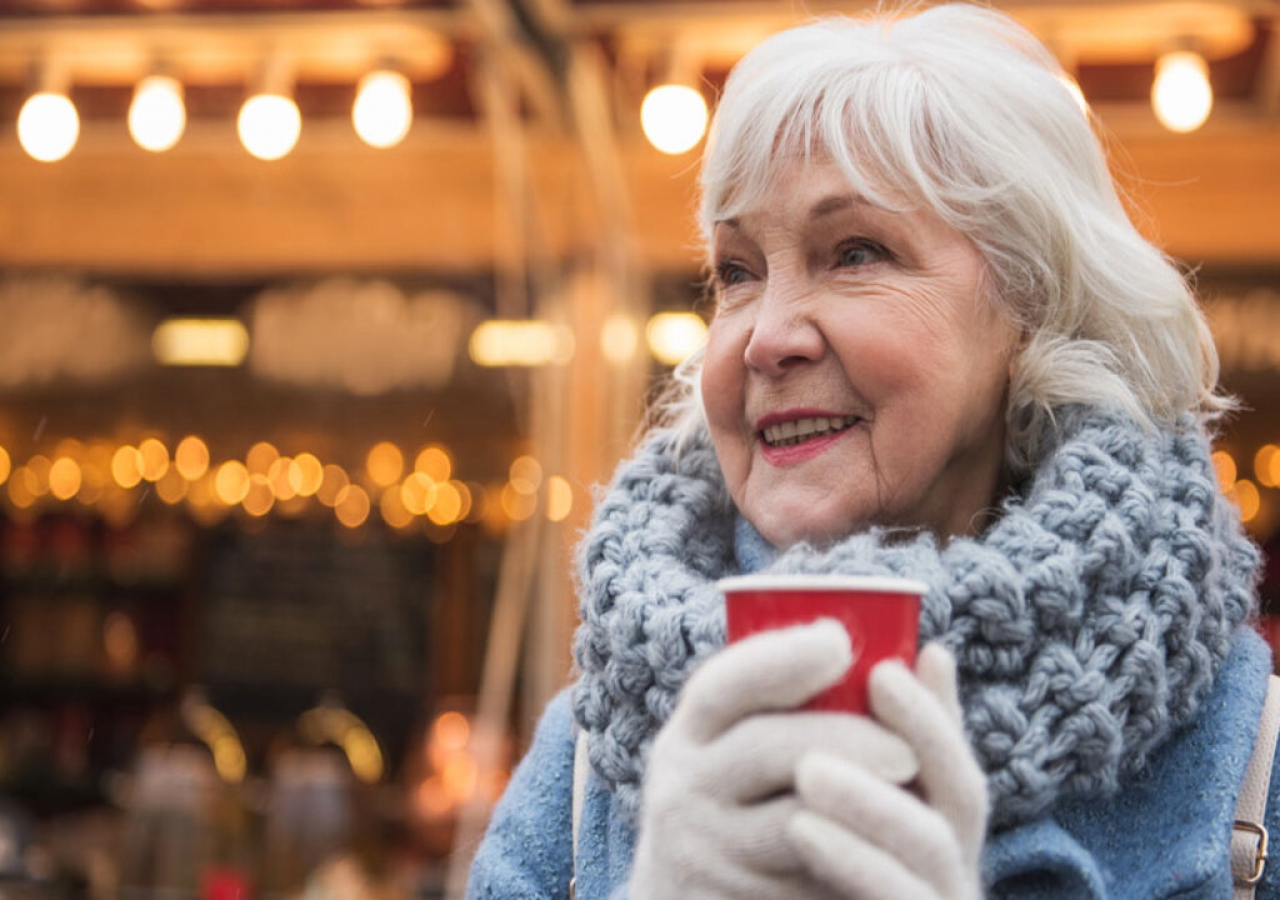Cold and rain also favor falls in the elderly, due to the combination of a slippery floor with less ability to balance and coordinate. In this sense, the need to take a series of precautions to maintain health is increasing. Winter care is critical to staying healthy. Acting correctly, the quality of life will be higher.
In order to protect yourself in the best possible way and stay safe, you need to pay attention to the following aspects:
Adequate food
A balanced diet throughout the year should be a priority for seniors. This care must be reinforced in the winter. Fruits and vegetables should be part of the diet, as well as proteins. In addition, meals can also be used to warm up the body. In that case, hot soups and broths are a good alternative for colder days.
Use of warm clothes
It is important to protect yourself from excessive cold. Choose warmer clothing, such as warm clothing and fabrics that help block the wind. The use of socks, caps and other accessories also helps to keep the extremities warm. At rest, it is important to use blankets, as body temperature drops during sleep.
Hydration
When thirst is reduced, a good alternative is to take small doses several times a day. It is also necessary to remember that water can be absorbed in the form of vitamins, juices and teas, which helps to complement hydration.
Use of creams and moisturizers
Another relevant point is skin care, because in winter, it must be treated carefully, avoiding dryness. This can be done through creams and moisturizers, which help to avoid dry appearance and dermatological diseases. It is important to remember that, before using any product, it is essential to consult a dermatologist, who will indicate the ideal for each situation.
Maintenance of Vitamin D
Cold periods usually decrease exposure to the sun, which can cause vitamin D deficiency in the body of the elderly. The lack of this substance weakens the bones, making them more prone to fractures. Sunbathing is essential for the body to maintain the production of vitamin D, so it is worth reserving time daily for this activity. It is possible to obtain it by consuming certain foods that are rich in several other vitamins, namely: fish, egg yolk and mushrooms.
Fireplaces and Heaters
Fireplaces and heaters are extremely important in providing the necessary heat for people to endure the cold that is felt during the winter season. However, every precaution must be taken so that they are not a risk to human health. When the fireplace or heating is switched on, it is necessary to open the window or door slightly to allow air to circulate. If you do not, the concentration of carbon monoxide (lethal gas) can be fatal.
If the heating is powered by gas, you should check if a carbon monoxide detector is installed; if you are supplied with electricity, you should check that there are no damaged or worn cables that could cause a short circuit. In the case of heaters, you should not leave them on during the night or when you leave the house, nor should you leave clothes to dry on them, as this may cause a fire.
You must keep all flammable materials, such as curtains or coats, away from heat sources so that there is no risk of combustion.
Medical follow-up
During winter, respiratory diseases are an extra concern, as they can impair the ongoing treatment that is being carried out and bring complications to the state of health. Some diseases, such as hypertension, diabetes and chronic conditions, should be monitored closely, avoiding possible complications.
Regular medical follow-up should be part of the senior's life.







